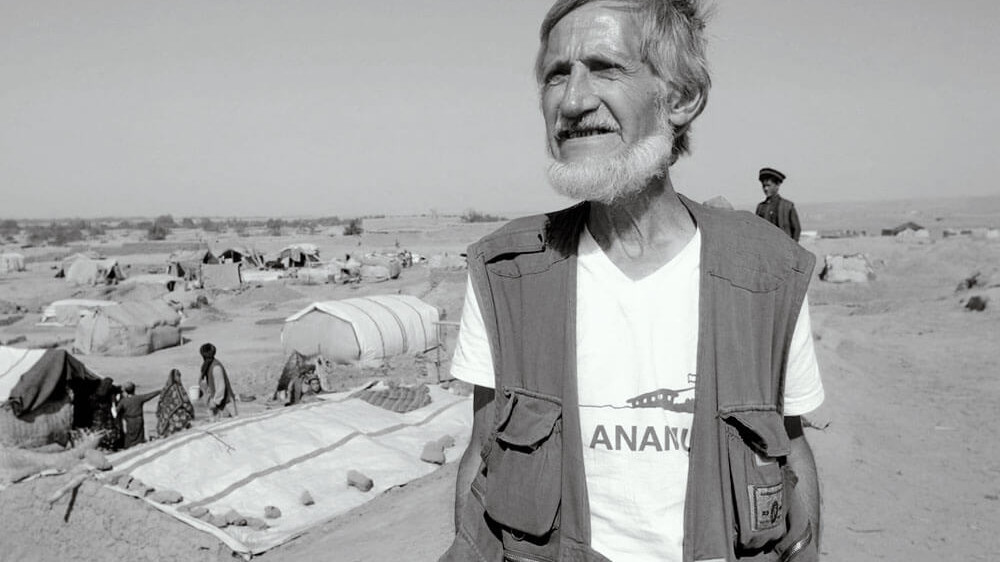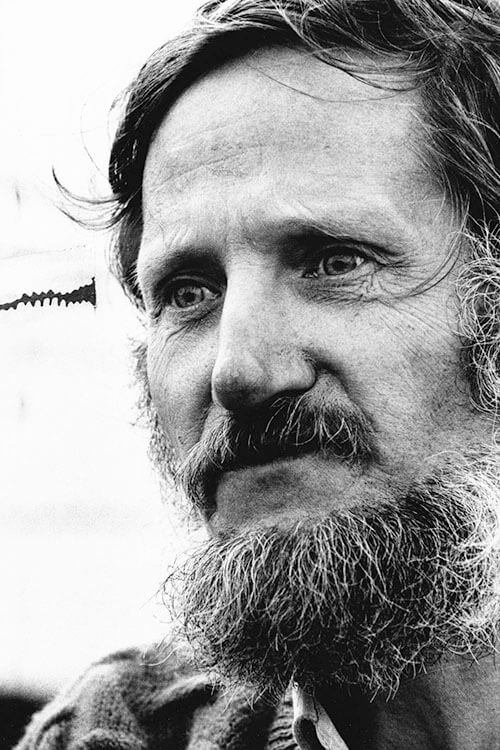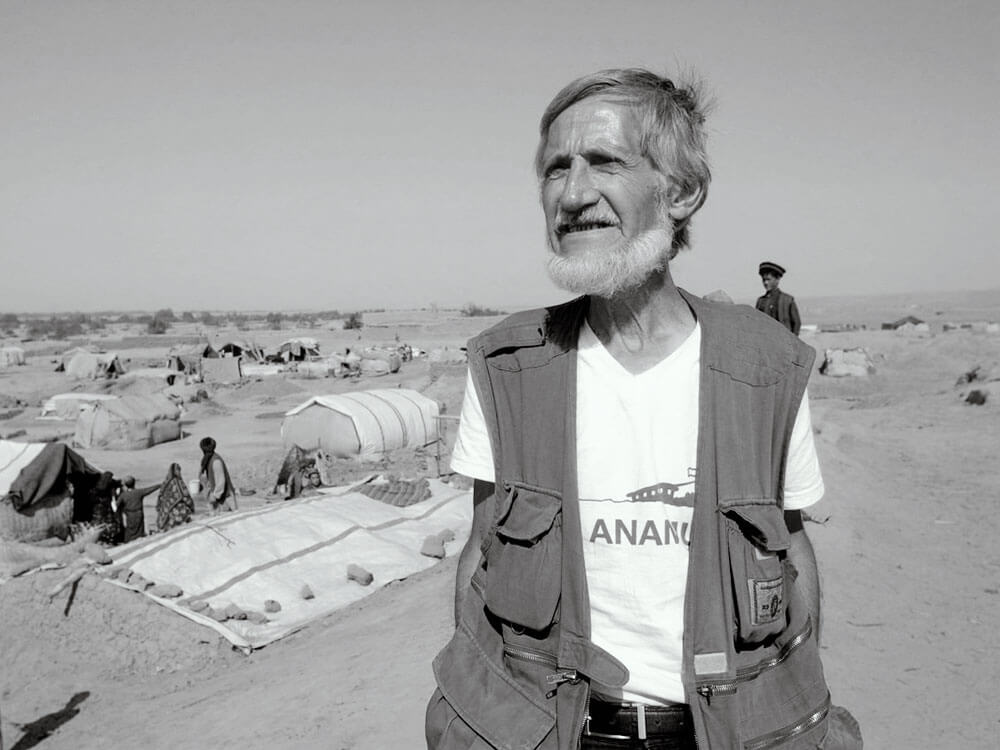
History
Rupert Neudeck
"I never want to be a coward again. Cap Anamur is the most beautiful achievement of the German desire never to be cowardly again, but always to be brave."
Rupert Neudeck at the 30th anniversary of Cap Anamur
Childhood and flight
Rupert Neudeck was born in Gdansk in 1939. In the freezing cold, his mother flees the country with him and his siblings on January 30, 1945. “Why didn’t you come two hours earlier, I still had tickets for the ship!” an acquaintance had called out to his mother. ‘The ship’ was the Wilhelm Gustloff, which was torpedoed a short time later and tragically sank with more than 9,000 people on board. Years later, Rupert Neudeck sees this event as another motivation to save the Vietnamese refugees in the South China Sea.
Said escape, in any case, his family was unable to succeed that day. His mother returns with him to Gdansk, where the family spends the last weeks of the war. The next escape attempt followed in July 1945. Mainly on foot, and on rare occasions by bus and train, the mother and her four children make their way west. “Death, hunger, destruction and fear were the images that characterized our early childhood,” Rupert Neudeck later recalled. The family eventually makes it to Hagen, where they even meet their father again. After weeks in collective housing, they are assigned a post-war vacant apartment.
College education and journalistic career
After graduating from high school, Rupert Neudeck studied philosophy, German language and literature, sociology and Catholic theology, first in Bonn and later in Paderborn. In 1961 he abandons his studies and joins the Jesuit Order. After leaving the Order, he resumes his studies and graduates in 1970. In 1972, he received his doctorate in philosophy from the Westphalian Wilhelms University of Münster with the thesis “Political Ethics in Jean-Paul Sartre and Albert Camus”. From 1969 to 1971, he served as a student editor for the Semesterspiegel, a college newspaper. In 1971, Neudeck began working as a full-time journalist at the Catholic Radio Correspondence in Cologne, then switched to freelance journalism in 1976. In 1977 he became an editor at Deutschlandfunk.
Rescue of the "Boat People"
The Vietnam War ended on April 30th, 1975 with the victory of communist North Vietnam. The communist regime’s crackdown on its population soon triggers a wave of refugees. Many see their only chance for a better and safer life in fleeing across the South China Sea, but the sea route holds many dangers: Storms, too small and decrepit boats and pirate attacks cost thousands of Vietnamese refugees their lives. When Rupert Neudeck hears about the plight of the people, he does not want to stand idly by. Together with his wife Christel Neudeck and the writer and later Nobel Prize winner Heinrich Böll, Rupert Neudeck charters a ship and founds the committee “A Ship for Vietnam”. In 1982, the organization is renamed Cap Anamur / Deutsche Not-Ärzte e. V.. It is named after the freighter Cap Anamur, on which the crew around Rupert Neudeck took on a total of 10,375 Vietnamese refugees, the so-called “boat people”, and brought them to Germany. Another 35,000 or so people received medical care on board. The rescue at sea of people fleeing is as much a topical issue as it is today. Neudeck also campaigned tirelessly on a political level to bring the survivors to Germany, which earned him much encouragement and recognition, but also much criticism.
Cap Anamur's land-based operations
However, the rescue of refugees from the South China Sea is just the beginning. Cap Anamur begins to engage in aid projects around the world, and especially to help where the media’s attention has long since waned. Medical care, the training of local professionals and the construction and rehabilitation of medical facilities and schools are the main focus from the very beginning.
Rupert Neudeck is a member of the board until 1998, after which he remains spokesman for the aid organization. It was not until 2003 that he completely relinquished the management of the organization, but remained closely associated with it until his death.
The journalist Franz Alt writes about Rupert in Der Spiegel: The Neudecks were a happy family. Only the atmosphere and the embedding in this family allowed Rupert Neudeck to live his radically humanistic life with all of his heart and mind.
Rupert Neudeck dies on May 31, 2016 at the age of 77 from the consequences of heart surgery.



